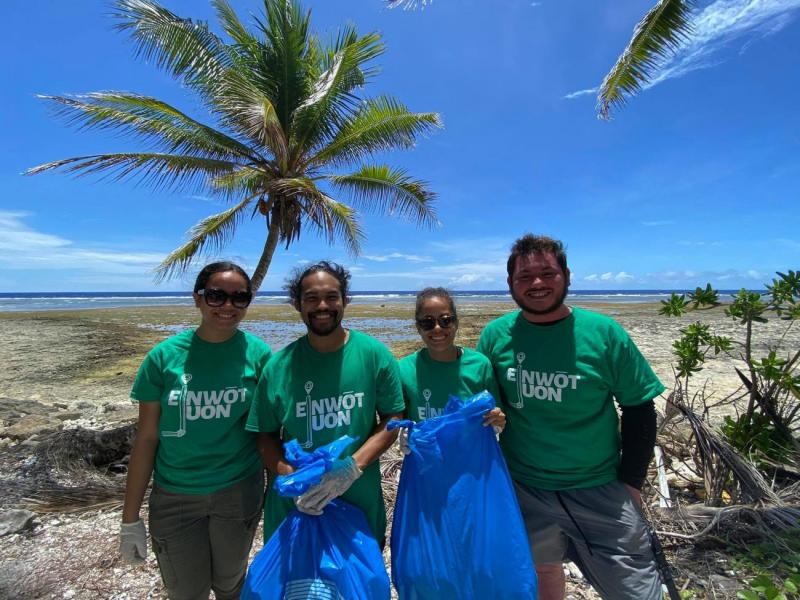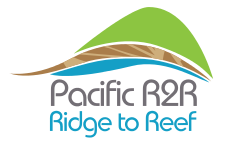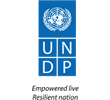
Pacific Community (Suva, Fiji) The Marshall Islands Conservation Society (MICS) recognizes that as human beings, we cannot enjoy our rights to food, water, health, and housing in a degrading environment. Thanks to support from the Pacific Community’s (SPC) Pacific People Advancing Change (PPAC) micro grant for Advocacy Coalition, we are proud to announce the continuation of the “Einwot Juon” Campaign in 2021. The project begins implementation this month and will continue through June 2022.
As part of its ongoing efforts to reduce the use of single-use plastic items in the Republic Marshall Islands (RMI), the Majuro and Ebeye Coalitions embarked on a rigorous campaign earlier this year to seek support from the communities in Majuro and Ebeye to sign a petition supporting the ‘Einwot Juon’ Campaign.
With over 1000 signatures collected, the Coalition, working closely with the Office of the President and the RMI Environmental Protection Authority, awaits the introduction of the amended legislation on Styrofoam and Plastic Products (styrofoam plates, cups, plastic shopping bags and now, utensils) in the Nitijela.
“While policies will be developed at the local level to address those who may need to use these utensils at the hospital or restaurant, the first step is to get the Nitijela to approve the amendments,” says Broderick Menke, a member of the Majuro Coalition.
With increased traction of the “Einwot Juon” campaign, our traditional leaders have requested the Coalition to include children’s single-use disposal diapers in prohibition efforts. MICS will pilot this on two outer island atoll communities where there are no adequate waste processing facilities. These two sites will be Likiep and Wotho where MICS has been actively engaged with for the development of Integrated Resource Management Plans under the Ridge to Reef Project.
“Ba Einwot Juon” to disposable items and use reusable products and metal forks and spoons instead. You can support businesses that provide these alternative products and let them know you appreciate their concern for our environment. You can also pledge your support for a plastic-free RMI. You can find more updates and activities on the Einwot Juon Facebook Page (www.facebook.com/einwotjuon). Join our movement and “Ba Einwot Juon!”
Background notes
The Pacific People Advancing Change (PPAC) programme aims to build advocacy capacity among Pacific Civil Society Organisations (CSOs) engaged with human rights issues, while also advancing those issues by supporting specific campaigns. It does this through a package of assistance that includes advocacy training workshops, ongoing mentoring, provision of small grants, and facilitating regional dialogue and exchange for advocates. The programme also produces learning materials for use in the advocacy training, and by partner organisations. Funding comes from the Swedish Government through SIDA.
PPAC currently supports CSOs in five Pacific Island Countries – the Federated States of Micronesia, the Republic of the Marshall Islands, the Solomon Islands, Tonga and Vanuatu. PPAC-supported CSOs and coalitions campaign on a wide variety of human rights issues, including gender-based violence, child rights and protection, labour issues, political representation of women, right to information, youth unemployment, disability rights, social harm of gambling, the rights of senior citizens, environmental issues, corruption, displacement, and climate change.
MI Ridge to Reef Star project. This project seeks to sustain biodiversity and livelihoods by building community resilience through strengthening natural resource management (via the Reimaanlok process) in five atoll/island communities. The five communities being focused on at this time are: Aur, Ebon, Likiep, Mejit, and Wotho. This project is funded by GEF through UNDP and coordinated through the RMI’s Climate Change Directorate.
The M.I.C.S. a local non-government organization operating in the Marshall Islands for about 17 years. Our vision is “People in Nature in Harmony” wherein the Marshallese people come to a new equilibrium with nature, based on a combination of traditional resource management practices, scientific assessments and insights for protection and management of target features, species and locations. To contribute to the nation’s goals to reduce the number of single-use plastics at our dumpsites, the “Einwot Juon” Campaign was set up to compliment the ban on Styrofoam products and certain single-use plastic products (take out plates and trays, and shopping bags) by seeking to reduce use of single-use plastic utensils such as straws, forks, spoons and knives and encourage the use of re-usable/alternative items.
Original Publication: https://www.spc.int/updates/news/joint-release/2021/09/rmi-advances-cam…





